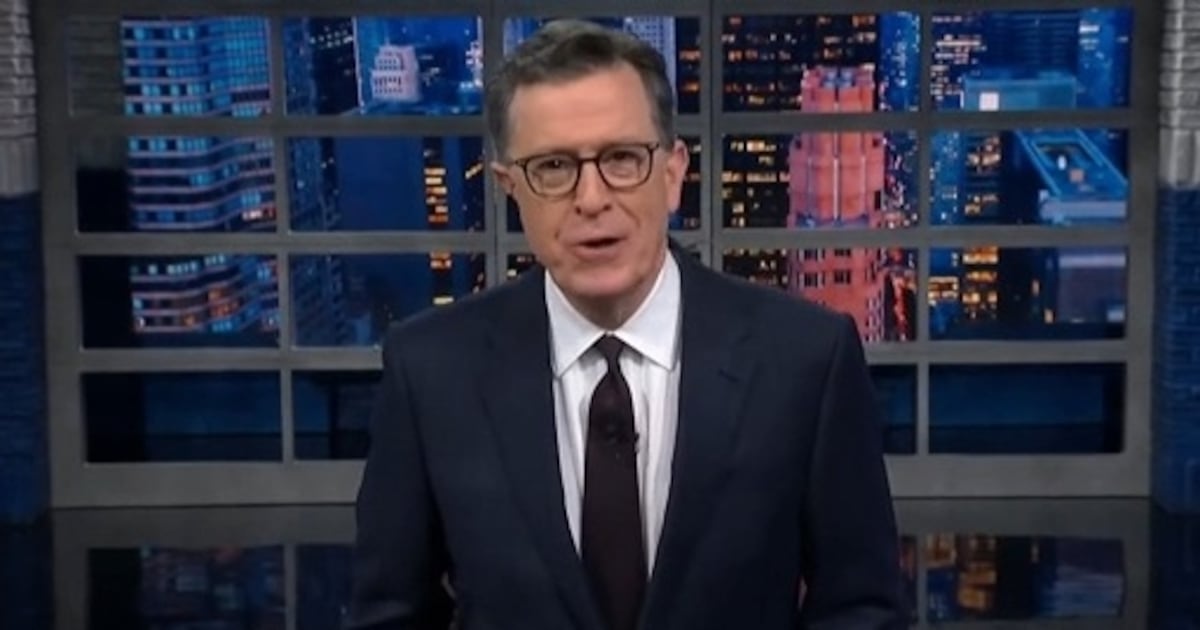Having rejuvenated the Agatha Christie-esque big-screen murder mystery with Knives Out and Glass Onion, Rian Johnson takes a shot at resurrecting the murder-of-the-week TV procedural with Poker Face.
Premiering Jan. 26, the ten-part Peacock affair is led by Russian Doll’s Natasha Lyonne, playing a modern-day variation on Peter Falk’s homicide detective Columbo. Energized by its headliner’s amusingly charismatic performance, a boatload of guest stars, and a collection of cleverly reversed whodunits, it’s a throwback that confirms the enduring vitality of tried-and-true formulas.
Like Columbo, its clearest inspiration, Poker Face divulges the identity of each episode’s killer upfront, only to then rewind to detail its main character’s relationship to—and successful unraveling of—the case. Its heroine isn’t a law enforcement officer, however; rather, Charlie Cale (Lyonne) is introduced as a cocktail waitress at the Frost Casino run by Sterling Frost Jr. (Adrien Brody), who took control of the venue from his respected and feared father, and who’s desperate to demolish his reputation as a nepo-baby screw-up.
To do that, he plans to swindle a high roller who’s running private games out of his comped room. Thus, he needs Charlie, who, despite her current lowly position, has a particular and highly valuable skill: She’s a human lie detector who can instinctively tell when someone is being deceptive.

Charlie’s gift is a magical gimmick that allows her to shortcut her way to exposing frauds and nabbing killers, and to enjoy Poker Face, one must suspend disbelief about her preternatural ability. That’s reasonably easy to do given Lyonne’s turn, which exudes the actress’ trademark blend of cockiness, world-weariness, and old-man grouchiness—all of it evoked by her gruff voice, whatever-man posturing and penchant for referencing decades-old movies and songs (for example: regarding a radio show, she quips that she wasn’t listening “like I was Gene Hackman or something”).
Lyonne’s Charlie is friendly and go-with-the-flow curious, and yet she’s also self-possessed and always on the lookout for fakes. And as with her spiritual predecessor Columbo, she has a catchphrase for when she’s onto the truth: “Bullshit.”
As we soon learn, Charlie is a Coors Light-loving former card shark who was rescued from trouble by Sterling’s dad, and she finds herself back in the thick of danger when she agrees to Sterling’s deal at the same time that her friend Natalie (Dascha Polanco), a housekeeper at the Frost Casino, is murdered alongside her abusive husband Jerry (Michael Reagan).
Given the couple’s prior run-in on the casino floor, authorities naturally assume that this was merely a domestic dispute turned tragic. By that point, however, Poker Face has already depicted Natalie’s demise at the hands of Sterling and his head of security Cliff (Benjamin Bratt), all because she spotted something on the high roller’s computer that she wasn’t supposed to see. The nature of that image is of no consequence; it’s the story’s MacGuffin. Yet proving that Natalie wasn’t a victim of her loutish spouse quickly becomes Charlie’s primary goal, thanks to her canny intuition and clues that point her toward alternative conclusions.
Johnson penned Poker Face’s premiere and directs the first two chapters. The confidence of the series’ storytelling is so strong—courtesy of rat-a-tat-tat dialogue, sharp characterizations and fleet plotting—that it immediately establishes its guiding groove. From its opening credits to its classic yacht-rock soundtrack cuts to its camerawork and editorial structure, the show boasts a distinctive ’70s-’80s aesthetic, even as it embraces its present-day setting by integrating cell phones and the Internet into its tales.
It’s a smooth hybrid of the old and the new, and one epitomized by Lyonne, who doesn’t mimic her sleuthing forefathers so much as channel their off-the-cuff sageness—which is offset by her occasional inability to come up with basic terms or descriptions—while simultaneously projecting a very contemporary brand of with-it canniness.

Thanks to the fallout from her ruse with Sterling, Charlie is forced to go on the run, thereby granting Poker Face a reason for having its protagonist move from town to town, picking up odd jobs that invariably place her in the middle of a new mystery. Cliff’s pursuit of Charlie gives the series a tethering narrative thread but the series is deliberately episodic in nature, and as with its ancestors, it populates its installments with familiar faces playing colorful types.
At a strip of New Mexico highway dominated by a Subway, an auto mechanic shop and a gas station convenience store, Charlie befriends a trucker portrayed by Hong Chau. Unexpectedly visiting a Texas BBQ joint, she encounters a shady restauranteur embodied by Lil Rel Howery. Chloë Sevigny as a faded rock star, and Ellen Barkin and Tim Meadows as washed-up actors, also cross Charlie’s path, lending the proceedings a cameo-heavy format that used to be all the rage back in the heyday of TV Guide.
Poker Face doesn’t want to reinvent the wheel; in a vein similar to the Knives Out films, its aims are to resuscitate a genre that’s fallen out of favor for no reason other than the fickle nature of tastes and fads. Charlie isn’t a deep character but, as with Angela Lansbury’s Murder She Wrote novelist and Tony Shalhoub’s Monk obsessive-compulsive gumshoe, she’s rich in quirky, engaging personality, and Johnson and company concoct a raft of intricate puzzles for her to solve at each stop along her zigzagging cross-country odyssey.
Helping matters further, the show’s writing is vibrant and dynamic, full of amusing zingers and pop-culture references that range from Charlie name-dropping Felix Unger and Road House to—perhaps funniest of all—a pit master undergoing a change of heart courtesy of a single viewing of Bong Joon Ho’s Okja.
Through its first six episodes (which were all that were provided to press), Poker Face sets itself on a comfortable course through a wild and diverse American landscape marked by nursing homes, dinner theaters, heavy metal clubs, and backwater radio stations. It’s a journey that’s meant to be up and down, and no doubt will be, depending on which Hollywood luminary pops up at a given site. With Lyonne and Johnson at the helm, though, the series proves to be a gamble—on old-school style, attitude and convention—that consistently pays off.
Keep obsessing! Sign up for the Daily Beast’s Obsessed newsletter and follow us on Facebook, Twitter, Instagram and TikTok.






